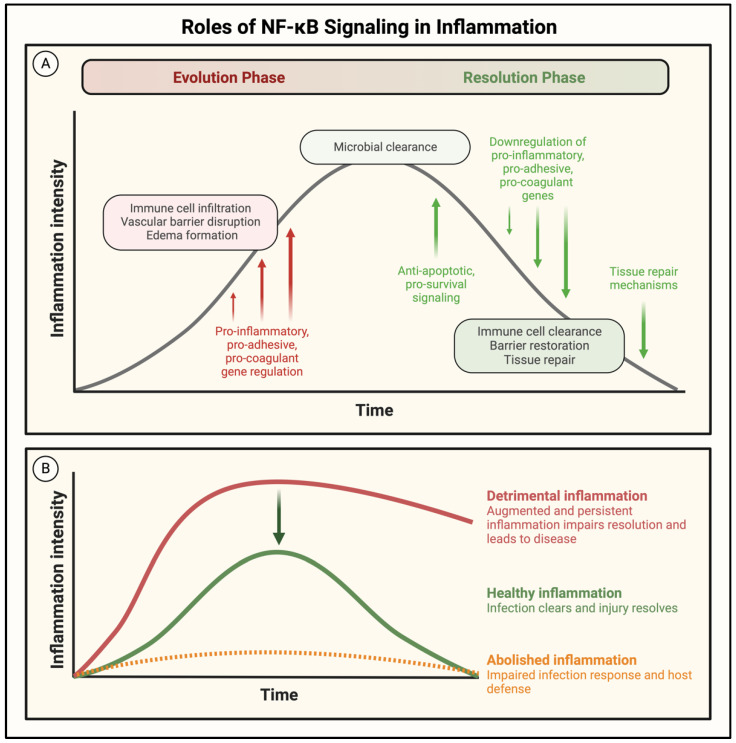Figure 10.
Roles of NF-κB signaling in evolution and resolution of inflammation. (A) In response to infection and injury, NF-κB activation initiates transcription of proinflammatory, proadhesive, and procoagulant genes. As resolution begins, changes/decline in NF-κB signaling promote tissue repair by inducing anti-inflammatory, antiadhesive, anticoagulant, and prosurvival mechanisms. (B) Dampening inflammation: an effective strategy to treat inflammatory conditions. Healthy inflammation (green) is self-limiting and resolves after infection is eliminated and tissue is repaired. However, in many disease conditions (red) inflammation becomes exuberant and persistent, and exerts detrimental effects on host tissues. Abolishing NF-κB/inflammation (orange) is counterproductive as it would impair the host defense response and tissue repair. Developing effective therapeutics to treat inflammatory conditions relies on selectively targeting detrimental inflammation while leaving healthy inflammation intact.

